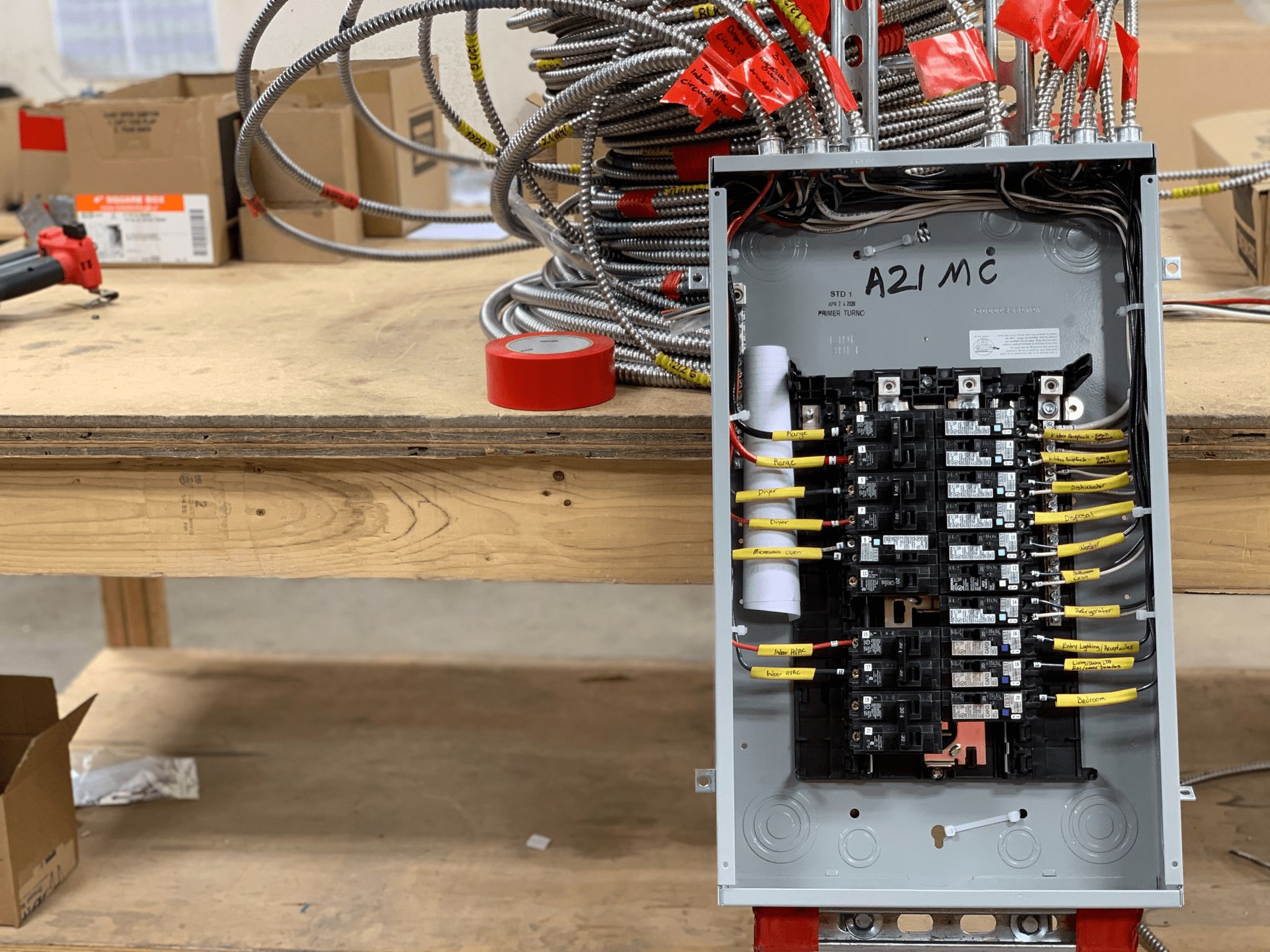Your electrical panel is the core of your electrical system. Within it, circuit breakers function, preventing electrical hazards like short circuits and overloads.
If you want to understand the role of circuit breakers in your electrical panels, read on as an expert in electrical panel installation, explore why these components are essential. We will also touch upon the risks of outdated panels and why modern upgrades can save you time, money, and peace of mind.
What Are Circuit Breakers and Electrical Panels For?
Circuit breakers are safety devices designed to stop the flow of electricity when a fault is detected. They prevent overheating, fires, and equipment damage by tripping when the current exceeds safe levels. These breakers are housed within electrical panels, distributing power to various circuits in your home.
“A circuit breaker acts like a security guard, instantly stopping power when things go wrong,” says a local electrician. “Without it, a minor fault could turn into a major disaster.”
Whether running appliances, charging devices, or flipping on the lights, your panel and breakers facilitate safe, consistent electricity flow.
Why Older Panels Are a Problem
Older electrical panels, especially those installed decades before high-powered devices became commercially available, are often ill-equipped to handle today’s power demands. Modern homes require at least 200 amps to support high-powered appliances, smart devices, and HVAC systems.
Relying on an outdated panel can lead to:
- Frequent breaker trips or flickering lights.
- Overheating wires increases fire risks.
- Limited capacity for new appliances or home upgrades.
Ignoring these issues is risky. An overloaded panel not only compromises your home’s safety but can also void insurance coverage in the event of an electrical fire.
Dangers of Wear and Tear on Circuit Breakers
Like any mechanical device, circuit breakers experience wear and tear throughout the course of their lifespan. Dust accumulation, corrosion, and repeated tripping can further compromise their ability to function effectively.
Signs of a deteriorating breaker include:
- A burning smell near the panel.
- Frequent tripping even under normal loads.
- Warm or discolored breakers.
When a breaker fails, it may not trip during a fault, increasing the risk of electrical fires and damage. Regular inspections and timely electrical panel upgrades are key to keeping your system safe.
High-Power Devices and the Need for Functional Circuit Breakers
Electric ovens, HVAC systems, EV chargers, and home theaters are high-powered devices. They draw significantly more power than older iterations of the same product. A faulty or underperforming breaker may not handle these demands, leading to:
- Overheating wires.
- Damage to sensitive electronics.
- Increased fire hazards.
High-power devices require breakers that can handle their specific load safely. Upgrading to modern panels equipped with AFCIs and GFCIs keeps your home protected.
Why Modern Panels and Breakers Are Worth It
Upgrading to a modern electrical panel with advanced circuit breakers provides significant advantages. These systems are built to handle high-power devices like electric vehicles, home theaters, and modern HVAC systems.
Modern panels also offer:
- Arc-fault circuit interrupters (AFCIs) to reduce fire risks.
- Ground-fault circuit interrupters (GFCIs) for wet areas like bathrooms.
- Improved energy efficiency and compatibility with renewable energy systems.
“A new circuit breaker installation isn’t just about handling more power—it’s about safety and future-proofing your home,” explains a professional technician.
The Consequences of Ignoring Needed Replacements
Delaying necessary panel upgrades or ignoring signs of failure can have serious consequences, including:
- Electrical fires are caused by overloaded circuits.
- Inconsistent power, resulting in appliance damage.
- Increased energy bills from inefficient electrical flow.
- Inconvenient power outages or costly repairs.
These issues are a danger to your home. A panel that shows signs of age or frequent malfunctions should be inspected immediately by a licensed electrician.
Prioritizing Safety and Professional Services
When considering an upgrade or replacement, safety should be your top priority. Electrical work is complex and potentially hazardous to you and your property, making professional services essential.
When looking for an electrician, pay close attention to:
- Proper licensing and insurance.
- Experience with panel upgrades.
- Transparent pricing and detailed assessments.
Investing in a modern panel is an investment in your home’s safety and functionality. “Upgrading your electrical panel is like upgrading the foundation of your home’s power system,” an expert advises. “It’s not just about meeting today’s needs but ensuring a safer, more efficient future.”
Your electrical panel and circuit breakers protect your home tirelessly. If you’re experiencing frequent trips, outdated equipment, or planning major upgrades, don’t delay seeking electrical services upgrades. Schedule a professional inspection and upgrade to a modern panel.
How are you planning to upgrade your electrical system? Let us know in the Comments below.



































